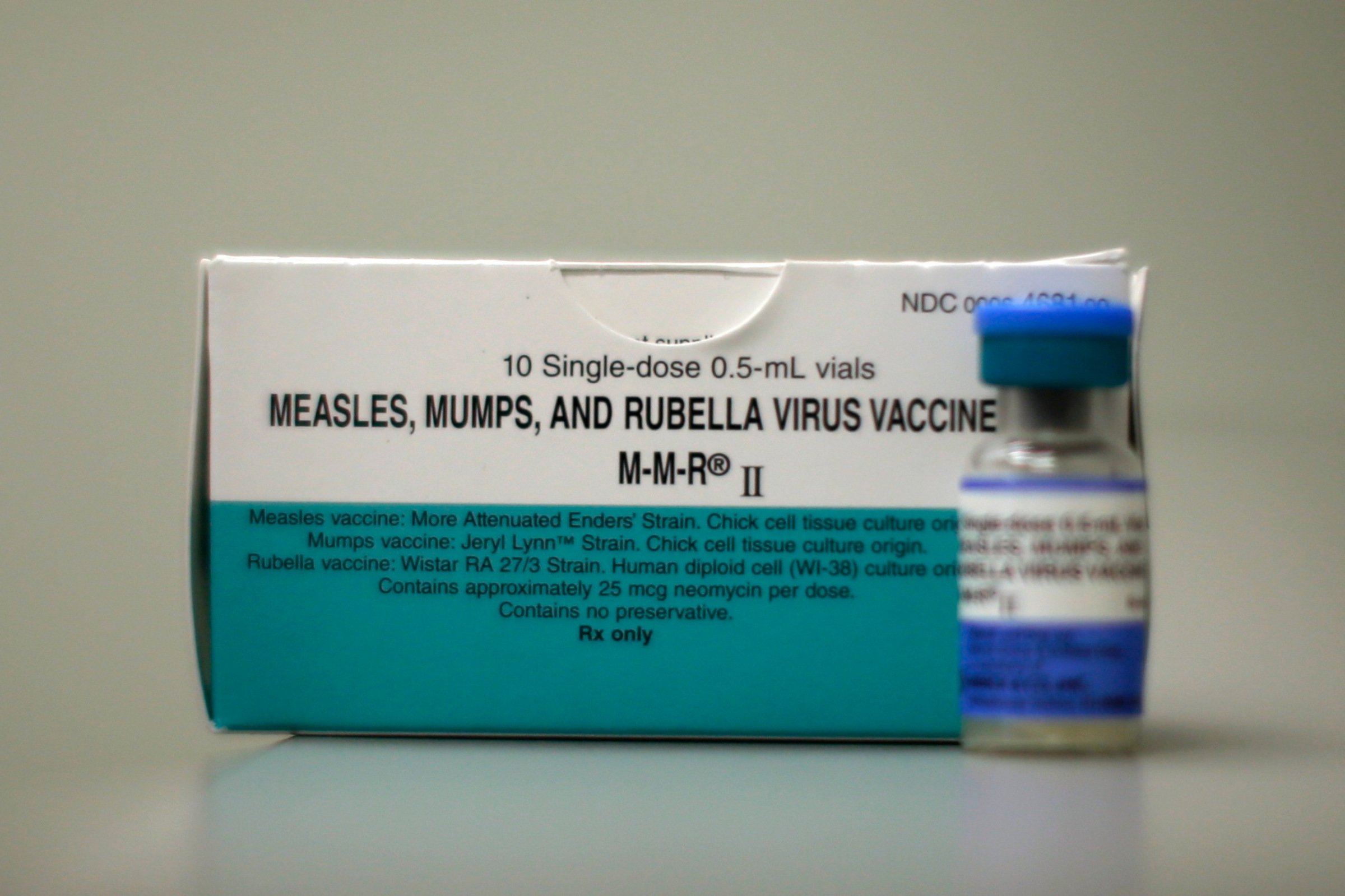
The outbreak of measles that has now infected 121 people in 17 states is confirmation of an unfortunate new reality – preventable diseases are back in the United States because too many people have ignored the value of vaccines.
The January outbreak of measles was caused by families who chose not to vaccinate their children, leaving them vulnerable to a myriad of contagious and devastating diseases. Most people who oppose vaccines don’t know first-hand what these diseases can do to you. They should meet me.
Unlike most people in the U.S., I know what it’s like to have polio, which used to infect an average of 35,000 people annually in this country in the early 1950s. I was an infant in India—which only became polio-free last year—when I contracted this paralyzing disease and was placed in an orphanage. Fortunately, I was adopted by an American family in Spokane, Washington.
Growing up, I endured multiple surgeries on my hips, legs, and back in order to be able to walk with leg braces and crutches. As a child, I had a difficult time fitting in. I looked so different from other kids, with the thick, heavy braces I wore on my legs.
Despite my experiences, I do not consider myself a victim of polio. I see myself as a polio survivor who beat the odds, and I made the decision to live life to the fullest. I graduated from college, moved to New York City, earned my MBA, and now work at a large global insurance company. When I was 28, I discovered sports. Within six years of beginning to train for triathlons, I became the first female wheelchair athlete to complete the Ironman World Championship in 2013. I also have become a health advocate working with Rotary International, which is dedicated to the eradication of polio.
More importantly, I am a new mother. Becoming a parent has brought me a joy that I have never experienced before. I plan on vaccinating my child against diseases such as measles and polio, because I do not want my child to endure what I did: the debilitating and permanent effects of a preventable disease.
Polio has not kept me from leading a full life, but there are others who are not as lucky. If not for the anti-vaccination movement, preventable diseases wouldn’t be a risk to children in developed countries like the U.S., where we have regular, affordable access to vaccines. In other places like Pakistan and Nigeria, children remain vulnerable as getting access to the vaccine can be dangerous. Polio workers in Pakistan are regularly subjected to violence, even killed, when they are vaccinating children.
What message are we sending to these countries when the vaccinations we advocate for internationally come under question or criticism in the U.S.? The critiques against vaccinations have not been backed by medical science.
The struggle to eradicate polio and other preventable diseases worldwide is endangered by our country’s anti-vaccination movement. We may soon face the death of a child in a developed country from measles – a tragedy is likely to happen before supporters of the anti-vaccination movement rethink their positions.
Children who have not been vaccinated and are infected with preventable diseases, such as polio, can face a lifetime of hardship, even death. I appeal to all parents who have opted out of vaccinating their children to please consider the challenges I have faced. If I had been vaccinated against polio, I never would have had to endure even one surgery. I would be able to walk and run normally.
We should all see vaccination for what it truly is: an opportunity to ensure that our children lead the healthiest lives possible.”
More Must-Reads from TIME
- How Donald Trump Won
- The Best Inventions of 2024
- Why Sleep Is the Key to Living Longer
- Robert Zemeckis Just Wants to Move You
- How to Break 8 Toxic Communication Habits
- Nicola Coughlan Bet on Herself—And Won
- Why Vinegar Is So Good for You
- Meet TIME's Newest Class of Next Generation Leaders
Contact us at letters@time.com